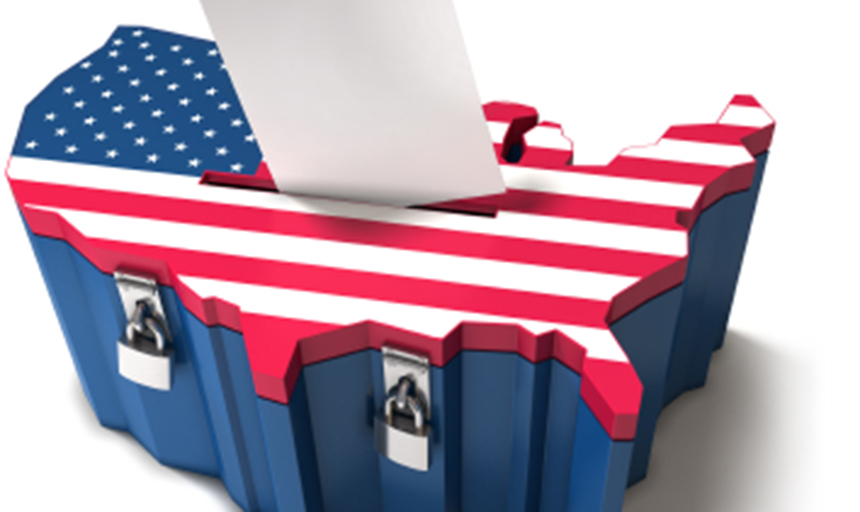RC Poll: Va. Republican Primary poll shows Romney leads Paul but Republicans still skeptical of Presidential hopefuls
March 01, 2012

Mitt Romney leads Ron Paul by 35 percentage points (56%-21%) in the Super Tuesday Republican Presidential primary election in Virginia according to The Roanoke College Poll. Romney leads Paul in every demographic group, although Paul does best with younger voters.
The Roanoke College Poll interviewed 377 likely Republican primary voters in Virginia between Feb. 13 and Feb. 28. The Poll has a margin of error of +5 percent.
The Virginia Primary
Romney holds a narrow but statistically insignificant edge even if the choices included Rick Santorum and Newt Gingrich, who are not on the Virginia ballot. In that scenario, Romney leads Santorum (31%-27%), followed by Gingrich (13%) and Paul (12%).
The Republican primary voters named the economy (45%) as the most important issue facing the country, followed by unemployment (21%) and the budget deficit (11%.) These results are very similar to the general population survey results released earlier this week.
Among the remaining Presidential candidates, Santorum had the highest favorable rating (47%) followed by Romney (36%), Paul (29%), and Gingrich (25%). Santorum was the only candidate to have a higher percentage of favorable impressions than unfavorable. By way of contrast, President Obama's favorable rating among this group of likely GOP primary voters was 27 percent.
Bolling v. Cuccinelli- looking far into the future
Looking further ahead to a likely 2013 Republican matchup for the nomination for governor, Attorney General Ken Cuccinelli leads Lieutenant Governor Bill Bolling by 37 percent to 18 percent, but 44 percent of those interviewed said they were undecided. Cuccinelli has greater name recognition than Bolling, according to poll respondents. When asked their impressions, more than half (51%) of the respondents said they did not know enough about Bolling to have an opinion. Of those who did have an opinion, 57 percent have a favorable impression of Bolling, compared to 16 percent unfavorable, and 27 percent had mixed feelings. Only one-third of respondents (32%) did not know enough about Cuccinelli to have an opinion. Of those who did, 62 percent had a favorable impression, 24 percent unfavorable and 14 percent were mixed.
Thirteen percent of those who said they would vote in the March 6 Republican primary identified themselves as Democrats, providing fuel for party faithful who are interested in party voter registration in future primaries. Another 28 percent referred to themselves as Independents. Only half were Republicans. The relatively small number of Democrats supported Romney over Paul (37% - 25%) but by a smaller margin than Republicans (67% - 13%.)
Analysis
"Republican primary voters in Virginia aren't particularly fond of their own candidates at this point," said Dr. Harry Wilson, director of the Institute for Policy and Opinion Research. "You would expect at least one of them to top the 50% approval rating mark, but none did."
"To state the obvious, it appears inevitable that Mitt Romney will win the primary," Wilson said, "but with a higher unfavorable rating (36% favorable, 37% unfavorable) among those voting, he is not an overly popular choice. Whichever candidate gets the GOP nomination, he will have a lot of work to do in Virginia."
"Looking ahead to 2013, Cuccinelli has greater name recognition than Bolling and leads in the head-to-head matchup," Wilson said, "but both currently enjoy high favorable ratings among Republican primary voters who are familiar with them. That said, a year can be an eternity in politics."
Methodology
Interviewing for The Roanoke College Poll was conducted by The Institute for Policy and Opinion Research at Roanoke College in Salem, Va. between Feb. 13 and Feb. 28, 2012. A total of 377 Virginians who are registered to vote and said they were likely to vote in the March 6 Republican primary election were interviewed. The sample of land lines and cell phones was prepared by Survey Sampling Inc. of Fairfield, Conn. and was created so that all cell phone and residential telephone numbers, including unlisted numbers, had a known chance of inclusion. Cell phones constituted 19 percent of the completed interviews. Some respondents in this poll were part of the sample included in the RC Poll completed on Feb. 26. Others were part of an oversample that was screened for likely Republican primary voters. Those interviews were conducted Feb. 26-28.
Questions answered by the entire sample of 377 residents are subject to a sampling error of plus or minus approximately 5 percent at the 95 percent level of confidence. This means that in 95 out of 100 samples like the one used here, the results obtained should be no more than 5 percentage points above or below the figure that would be obtained by interviewing all likely voters who have a home telephone or a cell phone. Where the results of subgroups are reported, the sampling error is higher. Results were statistically weighted for gender.
A copy of the questionnaire and all frequencies may be found on the Roanoke College web site.
For more about the Institute for Public Opinion Research, click here.
CONTACT: Dr. Harry L. Wilson, Director, IPOR
(540) 375-2415 (Office)
wilson@roanoke.edu